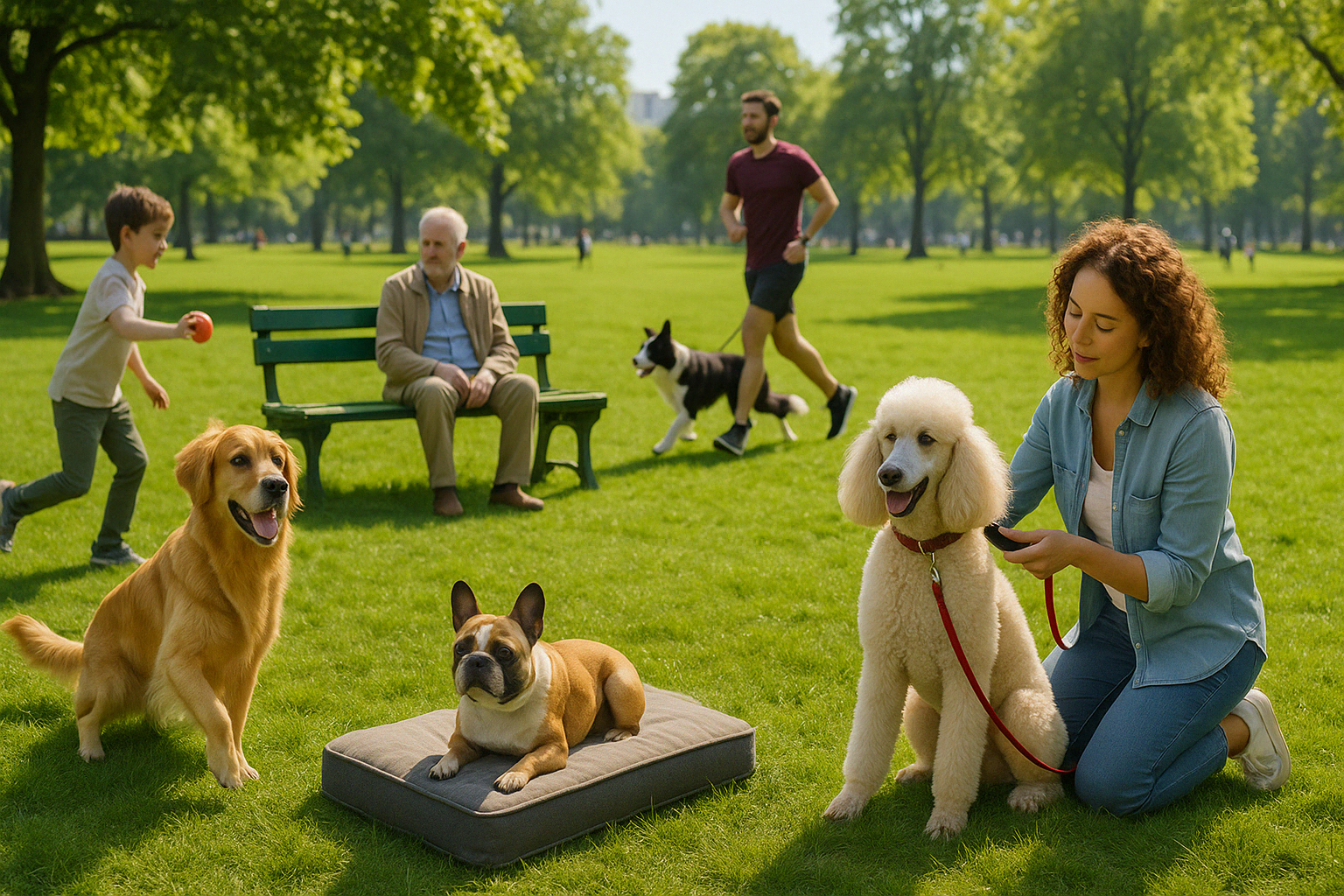Choosing a dog isn’t just about looks — it’s about lifestyle. Every breed has its own temperament, energy level, grooming needs, and health considerations. Whether you’re adopting or buying, selecting a dog that fits your day-to-day life is key to a happy, long-lasting relationship.
In this article, we’ll help you understand what different breeds bring to the table — and how to pick the perfect match for you.
Why Breed Matters
While individual personality is important, breed traits often influence:
- Energy and exercise needs
- Grooming and maintenance
- Size and living space compatibility
- Temperament with kids, pets, or strangers
- Trainability and independence
Knowing your lifestyle — and what you want from a companion — will guide your decision.
Questions to Ask Yourself First
Before choosing a breed, be honest about:
- How much time do I have for exercise and play?
- Do I live in an apartment or house with a yard?
- Do I have children or other pets?
- Can I commit to grooming or vet care?
- Do I want a high-energy dog or a calm one?
Your answers will lead you toward a breed that fits — not frustrates — your routine.
Breed Types and What to Expect
Working Breeds
Examples: Siberian Husky, Boxer, Rottweiler
Traits:
- High stamina and drive
- Need daily mental and physical activity
- Loyal and protective
Best for: Active people, experienced dog owners
Herding Breeds
Examples: Border Collie, Australian Shepherd, German Shepherd
Traits:
- Highly intelligent
- Need jobs or structured tasks
- Can become anxious or destructive if bored
Best for: Active homes, families who love training
Companion/Toy Breeds
Examples: Pomeranian, Shih Tzu, Chihuahua, Cavalier King Charles
Traits:
- Love cuddling and being close to people
- Smaller size = easier in apartments
- Grooming needs vary
Best for: Singles, seniors, or families in small spaces
Sporting Breeds
Examples: Labrador, Golden Retriever, Cocker Spaniel
Traits:
- Energetic and people-loving
- Great with children
- Need daily exercise and stimulation
Best for: Families with yards or outdoor lifestyles
Hound Breeds
Examples: Beagle, Basset Hound, Greyhound
Traits:
- Scent-driven and independent
- Some can be vocal
- Vary in energy levels
Best for: Patient owners, homes with fenced yards
Terrier Breeds
Examples: Jack Russell Terrier, Bull Terrier, Scottish Terrier
Traits:
- Lively and bold
- Can be stubborn
- Often dig or chase small animals
Best for: Experienced owners who like spunky dogs
Mixed Breeds – The Best of All Worlds?
Don’t overlook mixed breeds!
- Often have fewer health problems
- Can be a perfect balance of traits
- Personality is shaped by both genetics and upbringing
- Rescue dogs often come with some history and training
Ask the shelter about temperament, energy, and health needs — and meet the dog if possible.
Breeds for Specific Lifestyles
For Apartment Living:
- French Bulldog
- Cavalier King Charles Spaniel
- Greyhound (surprisingly calm indoors)
For Runners and Hikers:
- Vizsla
- Border Collie
- Australian Shepherd
For Families with Children:
- Golden Retriever
- Labrador
- Beagle
For Seniors or Calm Homes:
- Shih Tzu
- Maltese
- Bichon Frisé
For First-Time Owners:
- Pug
- Golden Retriever
- Havanese
No breed is “easier,” but some are more adaptable for new dog parents.
Other Factors to Consider
- Shedding: Some dogs shed heavily (like Huskies), others less (like Poodles)
- Allergies: No dog is truly hypoallergenic, but some trigger fewer symptoms
- Trainability: Intelligent dogs learn fast — but can get bored just as fast
- Barking: Some breeds are vocal watchdogs; others are quiet by nature
- Grooming: Long-haired breeds require more care and time
The more you know, the more confident your choice will be.
Final Thoughts
Choosing the right dog is about matching energy, lifestyle, and personality — not just appearance. When you take the time to understand breed traits and assess your life realistically, you’ll be rewarded with a companion who truly fits your world.
Because the best breed for you is the one who fits your heart and your habits.

